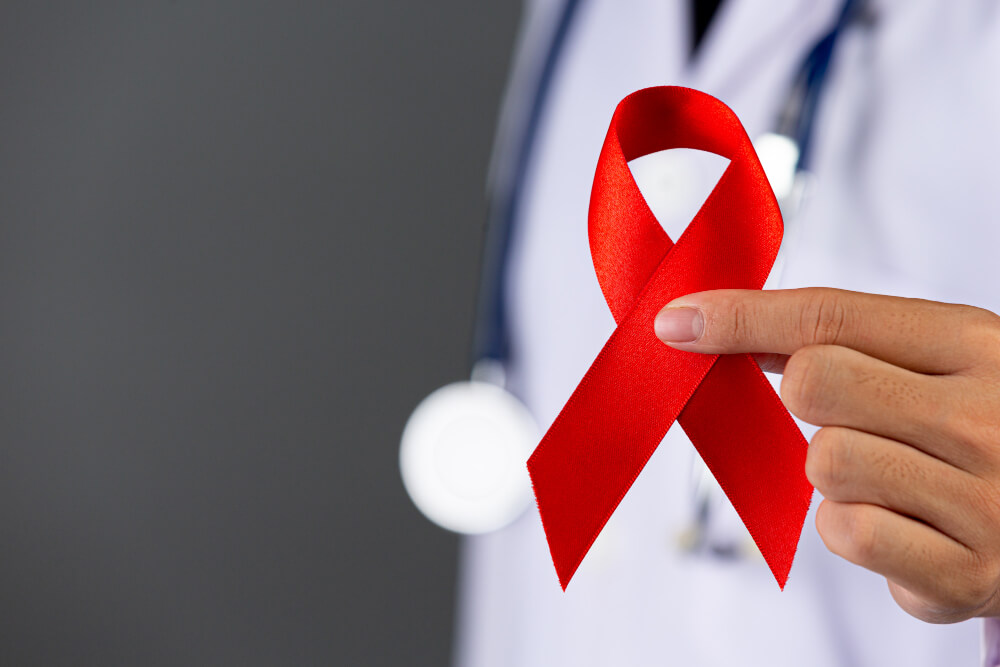Understanding HIV/AIDS: Symptoms, Treatment Options, and Living Well
Living with a diagnosis of HIV/AIDS can be daunting, but significant advancements in treatment have transformed the lives of countless individuals. This comprehensive guide sheds light on HIV/AIDS, equipping you with knowledge about symptoms, exploring treatment options, and empowering you to live a full and healthy life.

What is HIV/AIDS?
HIV (Human Immunodeficiency Virus) weakens the body’s immune system by attacking CD4 cells, crucial for fighting infections. Over time, untreated HIV can lead to AIDS (Acquired Immunodeficiency Syndrome), a stage where the immune system is severely compromised, making the body susceptible to opportunistic infections.
How is HIV Transmitted?
HIV is transmitted through specific bodily fluids:
- Blood: Sharing needles or syringes used for injecting drugs
- Semen (including pre-seminal fluid) or vaginal fluids: Unprotected sexual intercourse
- Breast milk: From mother to child during pregnancy, childbirth, or breastfeeding
HIV is not transmitted through:
- Casual contact (touching, hugging, or sharing a toilet)
- Saliva (kissing or sharing utensils)
- Tears or sweat
- Mosquitoes or other insects
Recognizing HIV Symptoms
Early HIV infection may not present any noticeable symptoms. However, as the virus progresses, some individuals may experience:
- Flu-like symptoms: Fever, fatigue, swollen lymph nodes, sore throat, and muscle aches (within 2-4 weeks after infection)
- Rash: May appear on the face, torso, or arms
- Weight loss
- Night sweats
- Mouth sores (thrush)
- Yeast infections (women)
It’s important to understand that these symptoms can be caused by other conditions. An HIV test is the only definitive way to determine HIV status.
Getting Tested for HIV
Early diagnosis is crucial for accessing effective treatment and preventing transmission to others. HIV testing is widely available and confidential. Options include:
- Rapid HIV tests: Provide same-day results at clinics, doctor’s offices, and community centers.
- Home access HIV tests: Allow testing in the privacy of your own home with results typically available within a few minutes.
HIV Treatment Options
The good news is that HIV is a manageable chronic condition. Highly Active Antiretroviral Therapy (HAART) is a combination of medications that suppress the HIV virus and prevent it from replicating.
How HAART Works:
- Different types of drugs target various stages of the HIV replication cycle.
- By suppressing viral replication, HAART reduces the amount of HIV in the body (viral load) to undetectable levels.
- An undetectable viral load significantly reduces the risk of transmitting HIV to others.
Benefits of HAART:
- Strengthens the immune system, allowing the body to fight infections effectively.
- Improves overall health and well-being.
- Reduces the risk of developing AIDS.
- Prevents transmission to sexual partners (when viral load is undetectable).
Taking HAART Effectively:
- HAART medications are typically taken as a combination pill once or twice daily.
- Adherence to medication is crucial for optimal results and to prevent the development of drug resistance.
- Regular doctor visits are essential to monitor viral load, CD4 cell count, and manage any side effects.
Types of HAART Medications:
There are various classes of HAART medications, each targeting a specific step in the HIV replication cycle. Some of the most common ones include:
- Nucleoside Reverse Transcriptase Inhibitors (NRTIs)
- Non-Nucleoside Reverse Transcriptase Inhibitors (NNRTIs)
- Protease Inhibitors (PIs)
- Integrase Strand Transfer Inhibitors (INSTIs)
- Entry Inhibitors (CCR5 antagonists)
Future of HIV Treatment:
Research into HIV treatment is ongoing, with advancements focusing on:
- Long-acting injectables: Reduce pill burden and improve adherence.
- Cure research: Exploring ways to eliminate HIV from the body entirely.
Living Well with HIV

A diagnosis of HIV is not a death sentence. With proper medical care, healthy lifestyle choices, and a strong support system, individuals with HIV can live long and fulfilling lives. Here are some tips for living well with HIV:
- Maintain a healthy diet: Eat nutritious foods to bolster your immune system.
- Exercise regularly: Physical activity improves overall health and well-being.
- Get enough sleep: Aim for 7-8 hours of sleep each night for optimal immune function.
Living Well with HIV
- Manage stress: Chronic stress can weaken the immune system. Practice relaxation techniques like yoga or meditation.
- Avoid smoking and excessive alcohol consumption: These habits compromise the immune system and can interact negatively with medications.
- Stay informed: Educate yourself about HIV and treatment options. Talk openly with your doctor and ask questions.
- Connect with support groups: Surround yourself with positive and understanding individuals who can offer emotional support and guidance.
- Disclose your status to sexual partners: Open communication with partners is essential for practicing safe sex and preventing transmission. However, only disclose your status to those you trust and feel comfortable with.
HIV and Mental Health
Living with a chronic illness like HIV can take a toll on mental health. Here are some common mental health concerns faced by individuals with HIV:
- Depression: Feelings of sadness, hopelessness, and loss of interest in activities can be challenging.
- Anxiety: Worry and fear about the future or health can be overwhelming.
- Stigma: The social stigma associated with HIV can lead to feelings of isolation and shame.
Seeking Help for Mental Health Concerns:
It’s important to address mental health concerns promptly. Here are some resources:
- Talk to your doctor or a mental health professional.
- Consider joining support groups specifically for individuals with HIV who may understand your unique challenges.
- Online resources and forums can provide support and connect you with others facing similar situations.
Preventing the Spread of HIV
There are several ways to prevent the spread of HIV:
- Practice safe sex: Always use condoms (male or female) and dental dams during oral sex.
- Get tested regularly: Knowing your status empowers you to make informed decisions about your health and the health of your partners.
- Pre-Exposure Prophylaxis (PrEP): Individuals who are HIV-negative but at high risk of contracting HIV can take daily medication to prevent infection.
- Post-Exposure Prophylaxis (PEP): If you believe you may have been exposed to HIV, PEP medication can significantly reduce the risk of infection if taken within 72 hours.
Remember: An undetectable viral load from effective HAART treatment virtually eliminates the risk of transmitting HIV to sexual partners.
Conclusion
HIV/AIDS is a manageable condition with significant advancements in treatment. Early diagnosis, adherence to medication, and a healthy lifestyle empower individuals with HIV to live long and fulfilling lives. By getting informed, seeking support, and practicing safe sex, you can take control of your health and prevent the spread of HIV.
